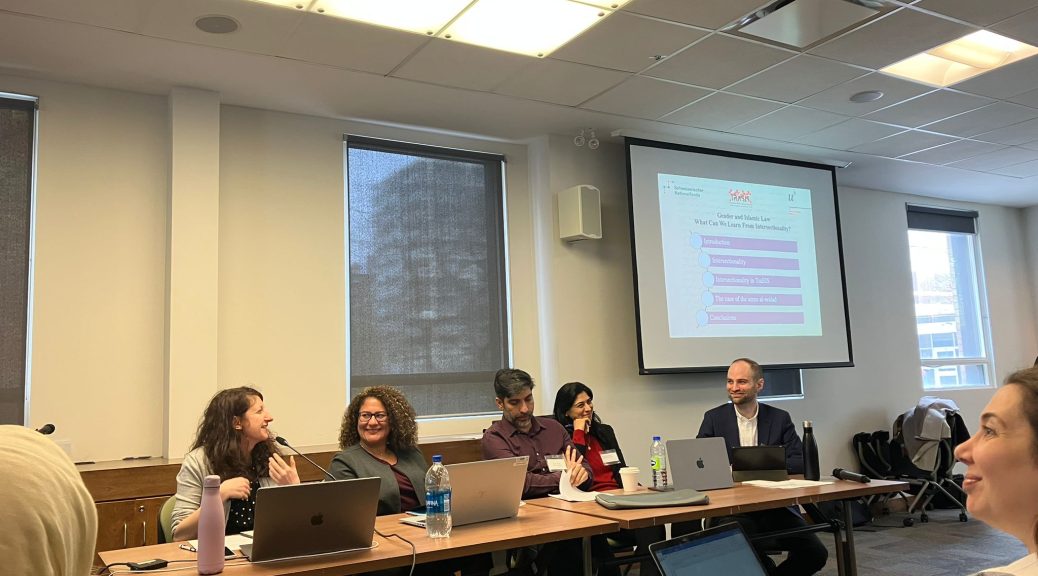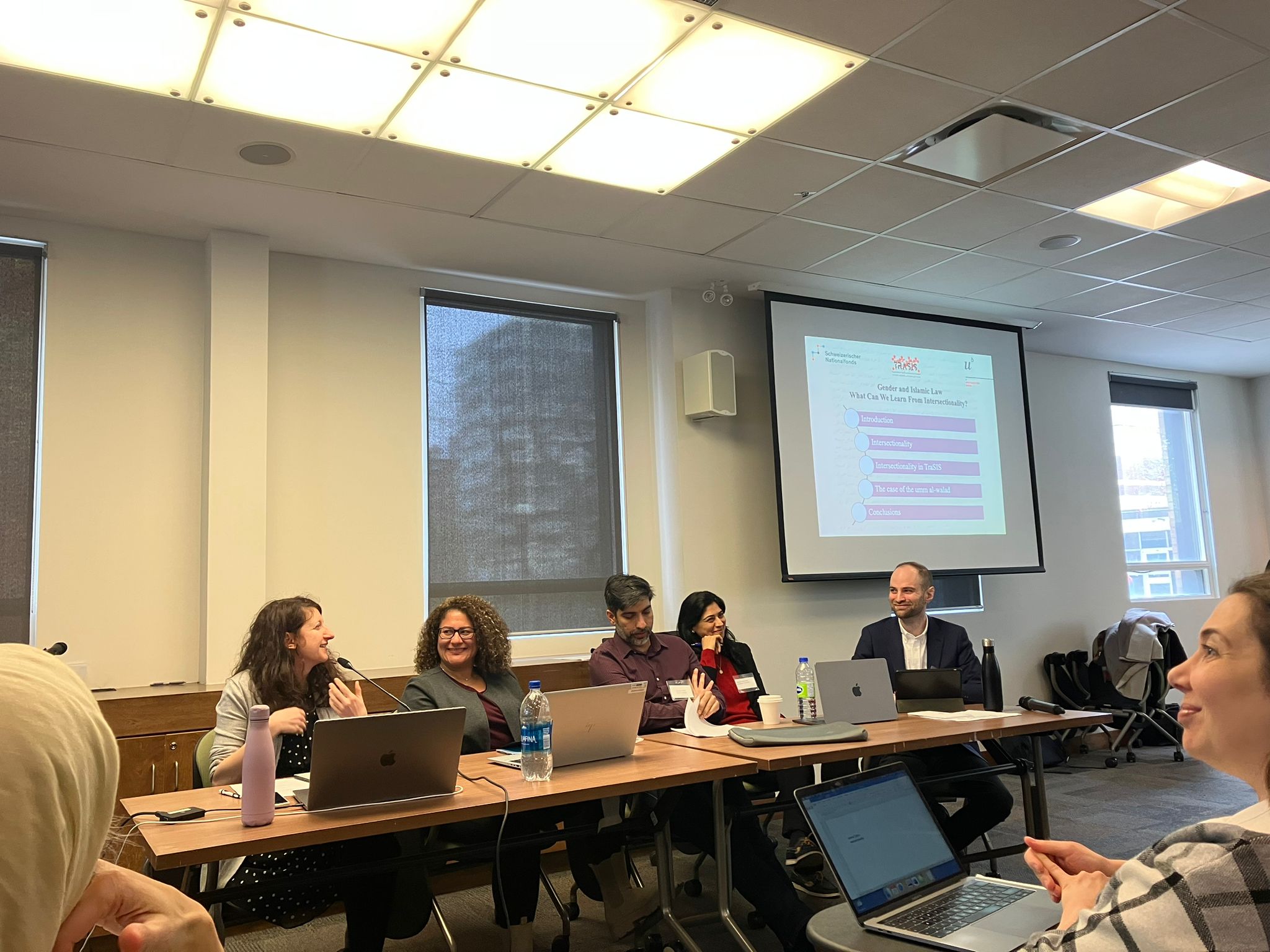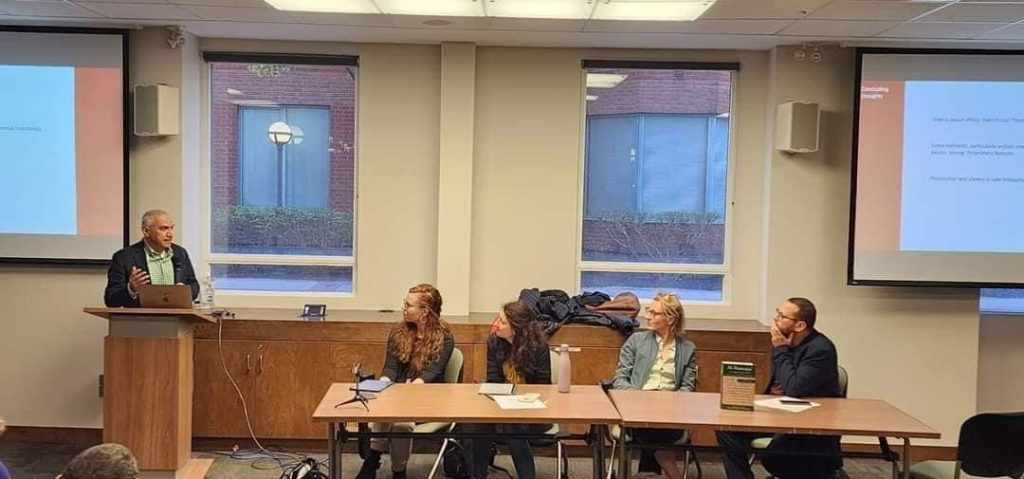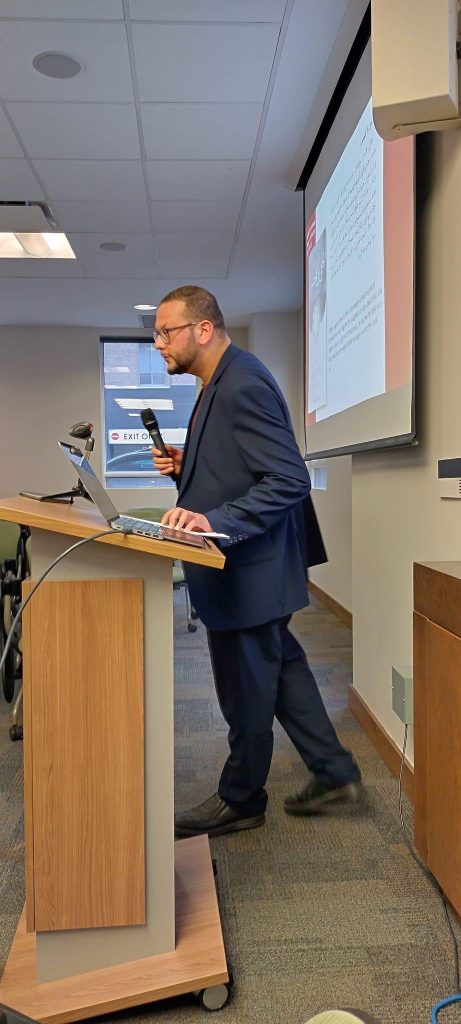
The TraSIS Team in Toronto
Four members of the TraSIS team went to the University of Toronto to present on methodological aspects of the project, as well as sharing some of their early research findings.
At the end of April 2023, four members of the TraSIS team went to Toronto to introduce the project in a workshop immediately preceding a major conference on Re-evaluating Methodological Trajectories in the Academic Study of Islam. Jointly hosted by the Department for the Study of Religion at the University of Toronto and the Centre for Theology and Religious Studies at Lund University, the conference (organised by Seyfeddin Kara, Suleyman Dost, Walid Saleh, and Karen Ruffle) provided delegates with a vibrant environment in which to hear about recent methodological developments in Islamic Studies.
In the TraSIS workshop, chaired by Mohammad Fadel, a leading light in the study of Islam law, and introduced by Walid Saleh, one of the foremost scholars of Qur’anic Studies, Serena Tolino introduced the team, our research methods and approaches, and central project questions. Omar Anchassi spoke about the archaic practice of sexual hospitality in the early Islamic period. Laura Emunds explored the earliest discussions of kitāba in Islamic legal discourse, complicating the simple freedom-slavery binary. Laura Rowitz introduced the audience to different interpretations of kafāla prevalent in the MENA region, stressing the importance of studying it as phenomenon structured by relations of dependency. Mohammad Fadel then offered his learned reflections on the research presented by the team, sharing some of his vastknowledge of Islamic law. Our presentation of the project was warmly received by the audience.
During the main conference, more than thirty papers explored the full range of methodological approaches in the field of Islamic Studies, from new trends based on the discipline’s philological roots, to approaches based on the study of material culture and ethnography. Serena Tolino presented a paper entitled “Gender and Islamic Law: What Can We Learn from Intersectionality?” In her paper, the TraSIS PI introduced the intersectionality matrix developed by the TraSIS team. She highlighted the importance of acknowledging the impact of different axes such as gender, race, ethnicity, class, age, and religion on the legal status of persons. Use of these intersecting axes allows one to gain deeper insight into questions related to persons’ social and legal standing.
The conference and the opportunity to hold the preceding workshop presented an excellent opportunity for the TraSIS team to connect our research to the work of international colleagues. We express our gratitude to the organisers of both events, from Toronto and Lund, and to the colleagues who participated. The event proved to be one of the most stimulating and enriching the team has ever attended, both on the academic and personal levels. The organisers succeeded in demonstrating that Islamic Studies, and the academic study of Islam in all of its disciplinary contexts, is more than simply a flourishing field, but is a vibrant, exciting and worthwhile endeavour made up of the work of the worthiest of colleagues.


